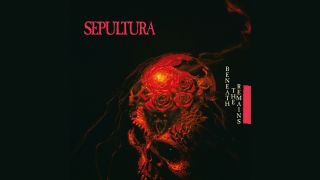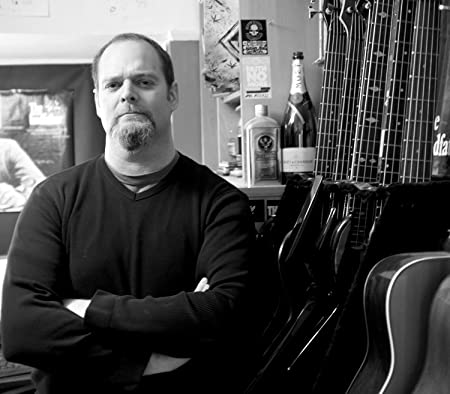It’s 25 years today since Sepultura’s stunning third album Beneath The Remains woke the metal world up to a mighty force coming out of Brazil. In an exclusive Metal Hammer interview, Max Cavalera looks back in anger...
“Believe it or not,” says Max Cavalera, easily the most metal human being ever to come out of South America, “a lot of the lyrics on ‘Beneath The Remains’ were inspired by U2’s ‘War’ album.”
“Before then,” he continues, “I’d been inspired by Black Sabbath and Motörhead, but I started listening to U2, who had really great lyrics. If you listen to the title track of Sepultura’s_ Arise _album, which came after Beneath The Remains, one of the main lines is ‘Under a pale grey sky’ which is taken directly from ‘Under a blood red sky’ on U2’s New Year’s Day.”
Not what you were expecting? Well, it’s fair to say that Max has never been predictable, even as far back as 1989, when he and his band of urban tearaways Sepultura hit the world stage with their Roadrunner Records debut Beneath The Remains. Sepultura – at that time also featuring Andreas Kisser [guitar], Paolo Jr [bass] and Max’s brother Iggor [drums] – never did anything by the book back then, least of all when it came to escaping the Sao Paolo ghetto where they lived. While their previous two LPs and an EP had received local acclaim, Max knew that Sepultura needed to act globally if they were to take the next step. His strategy took him to a different continent.
Monte Conner, now head of Nuclear Blast Entertainment but for over three decades the A&R chief at the legendary Roadrunner label, remembers his first meeting with Max.
“It was very difficult to communicate with Sepultura at the start,” he recalls, “because Max was the only member who spoke English. At Roadrunner we were very nervous about the fact that we had never signed a band from Brazil, so I took the contracts to the Brazilian consulate in New York and had them notarised to show that they were legal documents.”
Once the deal was signed, Roadrunner wasted no time in getting the band into a studio in Rio with Scott Burns, then a rookie producer.
“The budget for Beneath The Remains was only $8,000 but we soon realised that was way too little to make a competitive-sounding record using an American producer,” remembers Conner. “I got [Roadrunner owner] Cees Wessels to approve a $13,000 budget, which was a very large sum for us at the time. It was supposed to be an eight-song record, but the band came to me at the last minute and told me that they had a strong ninth song. I asked Cees if we could increase the budget by another thousand dollars to allow for it. Luckily he agreed, as that final song, Primitive Future, became the ideal album closer.”
The finished album blew the minds of all concerned, not to mention legions of international metalheads: the sheer speed and aggression of the songs, coupled with Max’s bestial vocals, were a huge leap forward from anything Sepultura had produced before that point. Discarding his earlier lyrical obsessions of demons and warfare, Max addressed more personal topics of alienation and exploitation – themes that resonated with thousands of headbangers. Thanks to Scott Burns, the incredible power of the songs wasn’t lost in the mix, as had been the fate of previous Sepultura releases: the savagery of Max and Andreas’s riffing and the relentless power of Iggor’s drums stood out clearly, precision-engineered for maximum impact. Little wonder Beneath The Remains went gold in several countries.
“It’s crazy that it’s 25 years since we made that record!” laughs Max. “It really doesn’t seem that long. I still love that album. It was a big step for us and a new direction. We had to record it at night, because we couldn’t have the studio in the day, and that affected the way the album sounded. I love the songs, though. _Inner Self _is one of my favourite Sepultura tracks: I love those lyrics because they’re how I felt at the time. ‘Walking in dirty streets / With hate in my mind…’ The lyrics preserve that emotion. Beneath The Remains itself is great, and Stronger Than Hate is a killer track too.”
Asked why the album was such a progression for Sepultura, Max reasons: “We were so excited about being on a real label, and we knew we had to do something much more powerful than our previous records. It was death-thrash metal, I guess, because there’s influences from both those styles of music. Mass Hypnosis has a lot of melodic riffs, but then you’ve got Beneath The Remains, which is death metal – very fast, brutal and in-your-face.” All these years later, Max’s approach to metal hasn’t changed.
“When I say I use music as a weapon,” he muses, “it’s not bullshit like it is when some people say that. A lot of my riffs are created to release anger, and there’s a lot of that on Beneath The Remains. You unleash your emotions that way. To this day, I’m still in love with fast music!”
Max Cavalera’s autobiography, My Bloody Roots: From Sepultura To Soulfly And Beyond,_ co-written with Joel McIver, is published by Jawbone Press on April 15._


